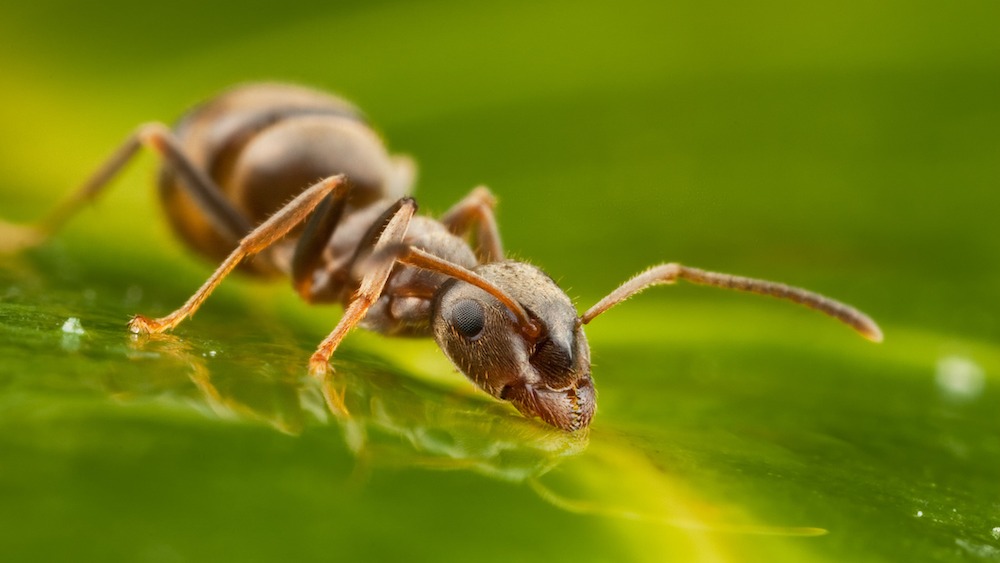Ants can detect the scent of cancer in urine
Ants use their antennae to sniff out cancer

Get the world’s most fascinating discoveries delivered straight to your inbox.
You are now subscribed
Your newsletter sign-up was successful
Want to add more newsletters?

Delivered Daily
Daily Newsletter
Sign up for the latest discoveries, groundbreaking research and fascinating breakthroughs that impact you and the wider world direct to your inbox.

Once a week
Life's Little Mysteries
Feed your curiosity with an exclusive mystery every week, solved with science and delivered direct to your inbox before it's seen anywhere else.

Once a week
How It Works
Sign up to our free science & technology newsletter for your weekly fix of fascinating articles, quick quizzes, amazing images, and more

Delivered daily
Space.com Newsletter
Breaking space news, the latest updates on rocket launches, skywatching events and more!

Once a month
Watch This Space
Sign up to our monthly entertainment newsletter to keep up with all our coverage of the latest sci-fi and space movies, tv shows, games and books.

Once a week
Night Sky This Week
Discover this week's must-see night sky events, moon phases, and stunning astrophotos. Sign up for our skywatching newsletter and explore the universe with us!
Join the club
Get full access to premium articles, exclusive features and a growing list of member rewards.
Ants can be trained to detect cancer in urine, a new study finds.
Although ant sniffing is a long way from being used as a diagnostic tool in humans, the results are encouraging, the researchers said.
Because ants lack noses, they use olfactory receptors on their antennae to help them find food or sniff out potential mates. For the study, published Jan. 25 in the journal Proceedings of the Royal Society B: Biological Sciences, scientists trained nearly three dozen silky ants (Formica fusca) to use these acute olfactory receptors for a different task: finding tumors.
In a lab, scientists grafted slices of breast cancer tumors from human samples onto mice and taught the 35 insects to "associate urine from the tumor-bearing rodents with sugar," according to The Washington Post. Once placed in a petri dish, the ants spent 20% more time next to urine samples containing cancerous tumors versus healthy urine, according to the study.
"They just want to eat sugar," Baptiste Piqueret, the study's lead author and an ethologist at Sorbonne Paris North University in France, told The Washington Post.
Related: Some cancer cells grow stronger after chemo. Research hints at how to kill them.
Because tumor cells contain volatile organic compounds (VOCs) that researchers can use as cancer biomarkers, animals such as dogs — and now ants — can be quickly trained to detect these anomalies through their sense of smell. However, researchers think that ants "may have the edge over dogs and other animals that are [more] time-consuming to train," according to The Washington Post.
Get the world’s most fascinating discoveries delivered straight to your inbox.
This is important because the earlier cancer is detected, the sooner treatment can begin. The researchers are hopeful that cancer-sniffing ants have the potential "to act as efficient and inexpensive cancer bio-detectors," they wrote in their study.
"The results are very promising," Piqueret said. However, he cautioned that "it's important to know that we are far from using them as a daily way to detect cancer."
Jennifer Nalewicki is former Live Science staff writer and Salt Lake City-based journalist whose work has been featured in The New York Times, Smithsonian Magazine, Scientific American, Popular Mechanics and more. She covers several science topics from planet Earth to paleontology and archaeology to health and culture. Prior to freelancing, Jennifer held an Editor role at Time Inc. Jennifer has a bachelor's degree in Journalism from The University of Texas at Austin.
 Live Science Plus
Live Science Plus










